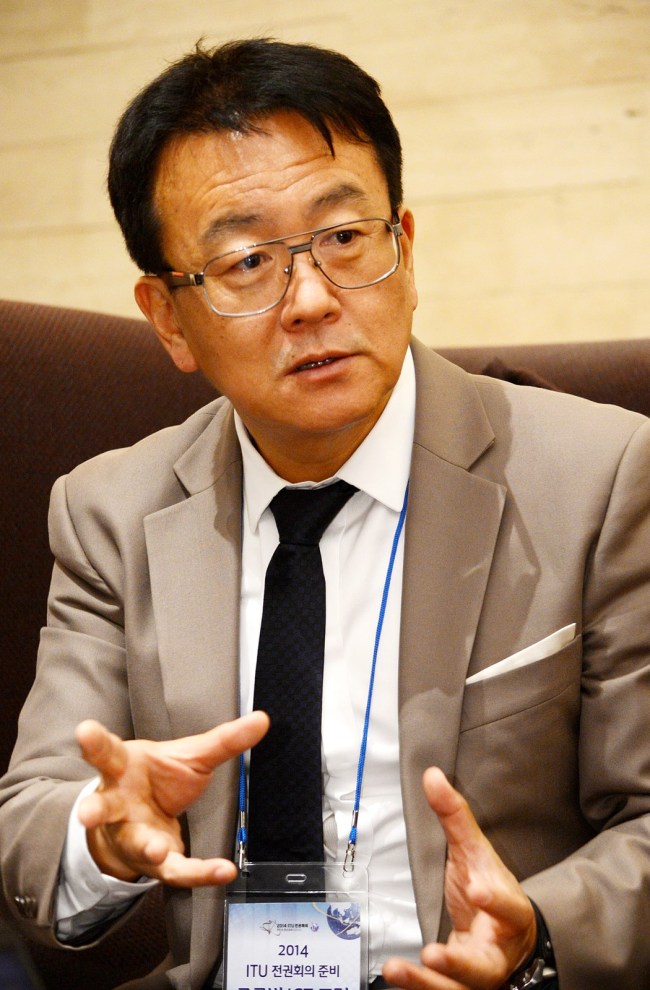Candidate for ITU unit chief vows to bridge digital divide
Lee urges public-private cooperation to standardise telecommunication technologies
By Kim Young-wonPublished : Nov. 27, 2013 - 19:47

A Korean candidate for director of a U.N. agency for telecommunications said that South Korea can play a critical role in bridging the gap between developed and less-developed nations through the world’s information and communication technology sector.
“Korea is now in a position to lead the world’s ICT industry. It is not a follower anymore,” said Lee Chae-sub, a candidate for the director of the Telecommunication Standardization Sector, a division of the International Telecommunication Union (ITU-T).
He added that “Korea, once a beneficiary of aid after the 1950-53 Korean War, is now capable of contributing to the global society with its advanced ICT, and it is time to do something about this.”
Lee, who is currently working as a researcher at the Korea Advanced Institute of Science and Technology, the nation’s top tech school, has also been serving as the chairman of ITU-T SG 13, a study group linked to the U.N. agency, since 2009.
In order to achieve the goal of narrowing the digital divide between advanced nations and less-developed ones, Lee said that collaboration is necessary between mobile makers and ICT firms such as Samsung Electronics, LG Electronics, Apple and Google in enhancing interoperability.
Even though it is important to feature unique technology with each new device, companies should abstain from distancing themselves from other players by focusing on developing exclusive technology, he said, and a higher priority should be given to interoperability.
“Interoperability among devices is critical, and even more so in less-developed and developing nations, where incompatible technologies among devices and networks could impair efficiency and effectiveness.”
Giving an example of consequences of technological incompatibility, he talked about one region in which two Internet service firms adopted foreign networks incompatible with each other, causing a network breakdown among the services they provided.
“By standardizing technologies, such costly incidents could be prevented,” he pointed out.
If elected as the chairman of the U.N. agency, he said he would shed light on the current issues of the ICT sector in Korea, often referred to as one of the most wired nations in the world. He also said he would set a global agenda among the ITU member nations of discussing and searching for effective solutions to these issues
Cyber fraud and hacking, along with countermeasures against cyber crimes, will be a part of this agenda, according to the ITU-T candidate.
It is expected that the chairmanship will be a boon to the domestic ICT industry, as the government and domestic private firms will have more opportunities for networking with the ITU member nations, multinational businesses and key players in academia, which will help accelerate the globalization of Korean ICT technologies.
“Korea, in return, will be able to serve a test bed for new technology, thanks to its advanced technology and infrastructure, and this will benefit other members as well,” he said.
The director of the ITU-T, whose term is four years, will be elected through a vote of its member countries during the plenipotentiary conference of the ITU in Busan in 2014.
By Kim Young-won (wone0102@heraldcorp.com)


















![[Today’s K-pop] Treasure to publish magazine for debut anniversary](http://res.heraldm.com/phpwas/restmb_idxmake.php?idx=642&simg=/content/image/2024/07/26/20240726050551_0.jpg&u=)